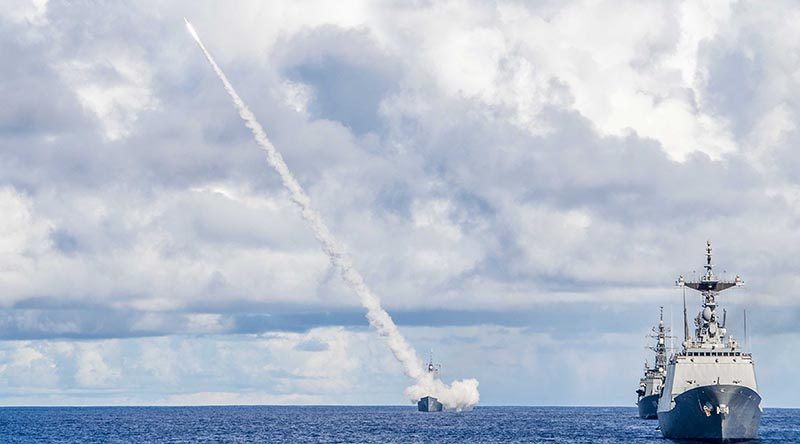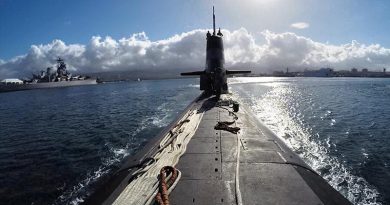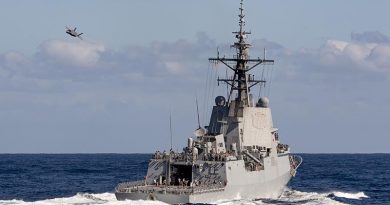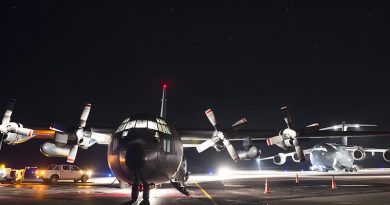First Exercise Pacific Vanguard a success

The first iteration of Exercise Pacific Vanguard was successfully held off the coast of Guam over the period 22 to 28 May 2019.
CAPTION: Royal Australian Navy guided-missile frigate HMAS Melbourne launches an SM2 missile while holding formation with Republic of Korea Navy guided-missile destroyer ROKS Wang Geon and Japanese Maritime Self Defense Force destroyer JS Ariake during a live-fire demonstration as part of Pacific Vanguard. Photo by MC2 Taylor DiMartino.
Exercise Pacific Vanguard was a combined maritime exercise involving key regional defence partners from Australia, Japan, the Republic of Korea and the United States.
Exercises included combined manoeuvres and live firing, as well as defensive counter-air and anti-submarine warfare serials.
Australian Fleet Commander Rear Admiral Jonathan Mead said the exercise was a maritime cooperation activity focused on interoperability, designed to enhance Australia’s ability to contribute to the peace and stability of the region.
“Exercise Pacific Vanguard involved four likeminded regional partners working together to support our shared views of a free, open and prosperous Indo-Pacific.
“The exercise not only future-proofs Australia’s engagement with partner navies by increasing understanding and experience in coordination and communication, it has also helped foster an already strong community built on shared interests,” Rear Admiral Mead said.
Royal Australian Navy participation included the submarine HMAS Farncomb and two frigates, HMA Ships Melbourne and Parramatta.
The Japanese Maritime Self-Defense Force was represented by the destroyers JS Ariake and JS Asahi.
Vice Admiral Hiroyuki Kasui, Commander-in-Chief, Self Defense Fleet, Japan, said this exercise deepened partnerships and made a great contribution to the peace and stability in the Indo-Pacific region.
“I sincerely respect and greatly appreciate Rear Admiral Mead’s leadership and contribution devoted by his staffs from planning to execution of the exercise, which brought the best result to the table,” Vice Admiral Kasui said.
The Republic of Korea participated with their destroyer ROKS Wang Geon.
The United States was represented by Flagship USS Blue Ridge, its guided missile cruiser USS Antietam and guided missile destroyer USS Curtis Wilbur, fleet replenishment oiler USNS Rappahannock and dry cargo/ammunition ship USNS Richard E. Byrd as well as a number of aircraft.
Vice Admiral Phil Sawyer, Commander, US 7th Fleet said the exercise advanced the integration of our forces, enabling us to better respond effectively as a group to the range of events that could occur in the region.
“Our shared values and common interests helped ensure a successful exercise, and our collaboration will help provide security throughout the Indo-Pacific.”
.
.
.
.
.
.

.
.





